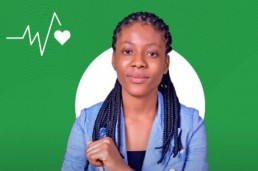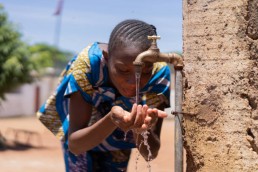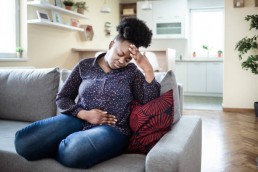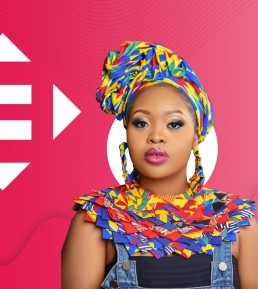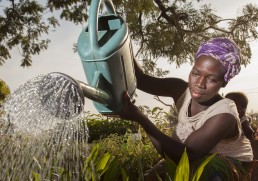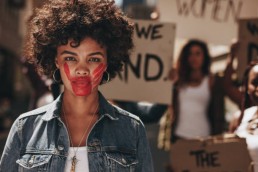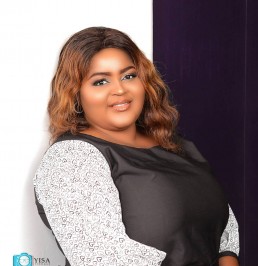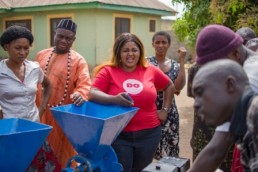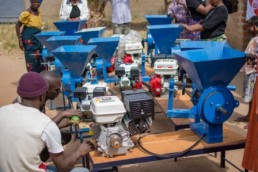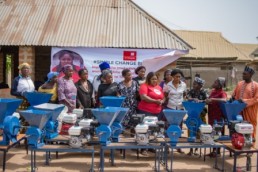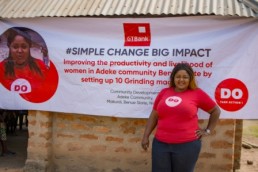Microcredit loans: A tool for women’s empowerment
In today’s time and age, it is refreshing to find women represented in almost all professions, vocations, and businesses. And they are not only represented in numbers but also in relevance, even in business. Currently, women constitute about 40% of the 41 million Small and Medium Enterprises (SMEs) in Nigeria.
Men still hold the lion-share in the business space, but women are no longer intimidated by patriarchal dominance. Rather, they are rising to the challenge, breaking glass ceilings in the business world and gradually making their mark.
A worthy mention is Folorunsho Alakija, a woman who started as a secretary in the corporate world before deciding to delve into business. Today, she is the CEO of Supreme Stitches, a tailoring company and Famfa Oil Limited, a petroleum company. Folorunsho has a net worth of $2.1 billion and was named the richest woman of black or African ancestry in 2014, surpassing Oprah Winfrey.
A slew of millennials like Olamide Orekunrin of Flying Doctors, Isioke Ogieowonyiin of L’espace, Eseoghene Odiete of Hesey designs and a host of others are redefining the business space with their entrepreneurial solutions.
However, one of the impediments to the advancement of women in business is the lack of funds to start up a business or expand a current business. Impoverished women are usually the most affected because they cannot afford the many options available to wealthy women (personal savings, family support, investment from a wealthy spouse).
This is where microcredit loans come in.
Microcredit, according to Investopedia, is a common form of microfinance that involves an extremely small loan given to an individual to help them become self-employed or grow a small business.
Microcredit loans as a tool for women’s empowerment
Accessibility
Commercial banks have a standing culture of giving loans to business tycoons and wealthy entrepreneurs because they have collateral and sureties. Banks don’t extend loans to those with little or no assets and generally don’t engage in small scale loans. Microcredit bridges this gap by providing small scale loans to poor entrepreneurs to help them get their businesses off the ground. Women stand to benefit ostensibly because they make up a greater percentage of small business owners.
Better loan repayment rates
Bank loans are usually associated with exorbitant interest rates that a struggling entrepreneur cannot afford. A poor woman trying to start a business or grow a business while taking care of the needs of her family will not find it funny repaying a loan with 20% interest rates; it will cripple her finances. However, microcredit loans come with low-interest rates and fair repayment plans that will allow the entrepreneur to manage the financial strain that accompanies loans.
Extending education and health
Women are natural caregivers. If a woman is empowered financially, she will extend the profits of her business to her family to ensure that their needs are met. Even studies prove that households with working moms are more likely to give their children a good education, medical care and other good things of life as much as they can afford than families where the woman is a housewife with no economic value.
Increased Gross Domestic Products (GDP)
A 2015 study by McKinsey Global Institute reveals that increasing the participation of women in the economy of a country can increase that country’s potential gross domestic product (GDP) and per capita income. To put it simply, it means that women hold the key to global economic development, prosperity and stability. And what better way to explore that key than empowering them through microcredit loans to open or expand their business.
Social and political empowerment
There is a correlation between the hand and the mouth, and an empowered hand equals an empowered mouth. As women become more economically involved, they also become more socially and politically involved. This means they can advocate for changes in their communities to improve their well-being, vie for and occupy public offices. Women who are not economically empowered will always ‘hide their face.’
Entrepreneurial training
What makes microcredit loans an exceptional solution for poor businesswomen is access to loans and the non-financial services they offer these women like business training, information access, technology development, marketing support, financial consultations, monitoring, and evaluation.
Access to these services enables women entrepreneurs to deal with difficult situations that arise in running their businesses, engage in income-generating activities, improve the performance of their projects, and ensure the success and sustainability of their businesses. On the other hand, the lack of these services is one of the primary reasons for the failure of female entrepreneurs’ projects and their transformation from entrepreneurs to financially distressed women, if not insolvent.
Microcredit loans are a great tool for alleviating women’s poverty and empowering women to be economically relevant. However, if loans are handed over to women in business without a framework to ensure sustainability, it will amount to little or no progress.
What to do
Gender-based microcredit loans
It is an illusion to believe that women borrowers are treated equally to their male counterparts. On the contrary, women are marginalised because they have lower capital absorptive capacity than men. As a result, women are passed over in microcredit programmes or can only access lower loan packages, programmes, and services; this limits the range of their economic activities and returns.
A solution would be to have gender-based microcredit programmes that cater to the peculiar needs of women in business and ensure gender inclusion in microcredit loan programmes and facilities.
Group microcredit lending
Women have built support groups and associations where members can access help, advice, mentorship and support. A very popular mention is the August Meeting of Igbo Women in Nigeria, where Igbo women in diaspora converge in their villages once a year to discuss matters and help themselves. Government, NGOs and microcredit facilities can partner with these women groups to disburse loans to economically deficient members. This system will allow for proper accountability of the loans and an excellent check mechanism that enlists the family and friends of the loaner to help offset the loans in due time to avoid embarrassment.
Policies for sustainability
Some barriers to women accessing more loans are usually inflexible repayment rates and duration. The government should create policies that ensure that microcredit facilities or programmes adhere to a flat interest rate and repayment plan. More impoverished women can take loans to start or expand their businesses and not be too overwhelmed by the added financial responsibility.
Many microcredit facilities and programmes only pay attention to earning profits instead of poverty alleviation; this is wrong as it defeats the very purpose of microcredit loans. Therefore, the government should implement a microcredit framework that fosters impact over profit. That means loans will not be limited to those who can pay back, but even the poorest of the poor can access loans and pay back in due time.
Business training
One of the key differences between a bank and a microcredit loan is the non-financial services microcredit programmes offer to their borrowers to ensure the loans are properly utilised. Beyond the loans, these mostly illiterate women should be taught managerial skills, bookkeeping, marketing, product research and selection, market survey, branding, networking etc. This is, in fact, the most important aspect of microcredit loans that should not be taken for granted; else, the loans will amount to little or nothing.
What we do at DO
Revolving Business Loan for Women is an advocacy project to increase the accessibility and affordability of loans for impoverished women to do business. This project advocates for more microcredit solutions to cater to women in business and improve their economic productivity.
Join us to carry out this project in your community by becoming a Grassroots Development Champion (GDC).
Become a DO partner or donor and sponsor this project in your community.
Esiobu Ngozika, Redefining the Girl-Child
In this time and age, it is rare to find young people who are more concerned with issues in their community than the next Twitter trend. Esiobu Ngozika is one of such rare young people.
Let’s meet her.
Tell us a bit about yourself
I am from Anambra state, and I reside in Benin, where I am currently studying English and Literature Education at the University of Benin.
I am a 300 level student of English and Literature, Faculty of Education in the Department of Educational Foundation, University of Benin.
I am a Copywriter. I write content and generate copies for businesses and individuals. That is my skill, and it’s an online skill where you write copies and all of that. I am 23 years old.
How was your childhood like?
I am from a family of seven; five kids. I am the third child. My childhood was not a palatable one because my Mom passed when I was still very young; I think I was 4 years old or 5 when she passed on. And given the fact that we are more of girls; we are four girls and one boy who is the lastborn, we couldn’t stay with our Dad. He had to go out for work. Because of that, we were spread among our uncles.
I went to stay with my uncle in Katsina state, with his wife and two kids as at then. The experience was not palatable, I must say. It was really tough for me. My uncle was a good and nice person even up till now, but I saw hell on earth in the hands of his wife. But what can I do? It’s part of life. It’s part of growth. It’s part of learning.
I eventually went back to stay with my Dad and Grandma, because there was no one I could stay with. My Dad did not remarry early; he remarried just recently. So, I had to stay with my Grandma, and that’s where I started life afresh. I stayed with my Grandma for two years, and moved on to Abuja to stay with my uncle; that was where I started and finished secondary school. Again, it was not easy. I eventually got my freedom when I gained admission into the school. That is my childhood story in a summary.
At what point did you decide that your current course and business is what you want to do?
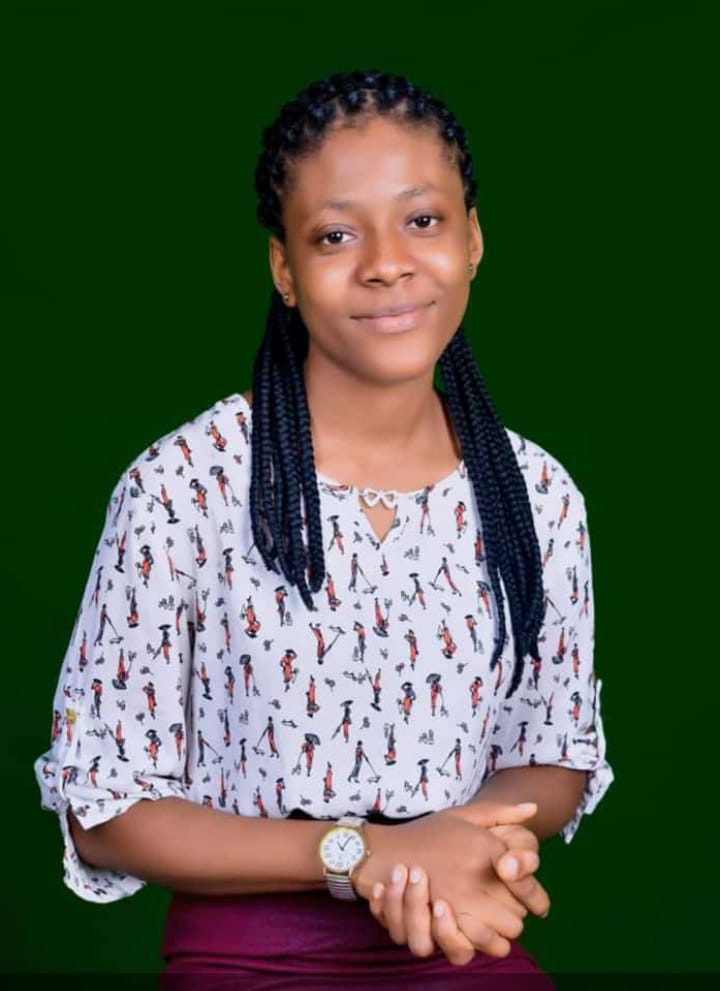 What prompted me to go into English and Literature as a course is because I like teaching, and back then, in secondary school, I spoke more of English. Even when I tried to speak pidgin like my mates, they were like, ‘Please, don’t speak that. It doesn’t fit you.’ I just like English. So, since I like teaching and I like English, why don’t I study it and make a profession out of it. So, that was what prompted me into studying English and Literature.
What prompted me to go into English and Literature as a course is because I like teaching, and back then, in secondary school, I spoke more of English. Even when I tried to speak pidgin like my mates, they were like, ‘Please, don’t speak that. It doesn’t fit you.’ I just like English. So, since I like teaching and I like English, why don’t I study it and make a profession out of it. So, that was what prompted me into studying English and Literature.
As per my side hustle, copywriting still falls under the same line of English writing. But, for my humanitarian services, reaching out to communities and my society, making an impact in my little way, even as a student, was borne out of my passion for the girl-child.
As a young girl growing up, staying with uncles was not easy. I stayed with my aunt in Abuja, at JSS 3 or SS 1, when I first had my period. Before then, no one has ever enlightened me about menstruation. So, at that point, I did not know what menstruation was and what to do. I remember that day vividly; it was on the 25th of December. I was perplexed. And you know, staying with uncles and aunties that don’t give you room to communicate with them, I’m always on my own. I’m still trying to get out of that lifestyle even up till now. I stayed with them; I was always on my own. Speaking to them was based on errands; asides from that, I was on my own. Consequently, communicating with them on any issue was a problem.
So, I was scared. I was freaking out, and I couldn’t even speak up or tell anyone. I was scared of what I’d tell my aunty or what her reaction would be. I did not know about menstruation at all. After the first day, I had to go on tissue; I think it was on the second day that she noticed a stain on my cloth and called me. She didn’t say anything about it. She just said, ‘whenever you see this kind of a thing, use this, use this.’ She then gave me some pieces of clothes that I made use of.
My period didn’t returned after my first experience, and I was happy. However, after about a year, I saw it again. This time around, I didn’t bother telling anyone since she had already told me what to use. Even though she was a pharmacist, she never educated me on menstruation, and I don’t know why. I had no education; I did not know about menstruation.
So, when I got admitted into the university and visited villages from time to time, I saw many things. I remember what I passed through when I was growing up, and that was one of the things I said to myself I needed to share. Young girls need to know about this thing. It is despicable that parents, especially mothers, don’t deem it right to educate their young girls on menstruation.
So, I’d been looking out for how to get started, given that I am a student when I came across DO Take Action. I was really happy because they afforded me the opportunity and provided a platform where I could make this dream come true. Because of my experience, I decided to do the Menstrual cycle hygiene and Sex Education project. I didn’t think twice when I chose this project. I still want to continue in it.
The second is the incessant out-of-wedlock pregnancies rampant in our days. You see young girls in JSS 3, SS 1, SS 2 having children out of wedlock, becoming mothers at a very tender age. No one comes up to say he is the father and take care of them. As a result, they become added burdens to their parents.
These things prompted me to do humanitarian service, and I keep doing it. I’m a Make Orumba Great Again; it is in Anambra state. I’m their secretary, and we are planning to execute a project this year, and we are still looking at that line of the program because I suggested to them that this is what I want, and we are looking into it to see how we can make that achievable.
Young girls need to be educated. They need to know that life is not all about giving birth at age 13, that there is more they can achieve, that they have a great future, that there is more for them, that their life doesn’t end in the bedroom or the kitchen. There is more to achieve out there, and we need to start from the grassroots to enlighten them.
These were everything that prompted me into going into humanitarian services.
What do you think has been instrumental to your level of success?
What has been instrumental to my success is that I believe that the expected end is what matters in life. Our expected end to a particular project or a particular action is what matters. When I look at myself and see the level of success I have achieved, I am energised to do more. Because it is not about me, it’s about the society that is getting impacted; it is about the society I am changing, the society I want to see tomorrow, and the girl-child I want to see tomorrow. It is about that girl-child that must not suffer what I passed through as a child. And this has been instrumental to my success. It keeps me going when I see them happy when I see a change. When I see that my impact is making a change, someone is making a change; I am building a better girl, woman, mother.
What bias have you had to deal with and how did you overcome them?
Being a female or a woman in Nigeria is not a day’s job. I am a woman, and I am a lady. However, I behave masculine. We are five in our family, and most of us are girls, save the lastborn. So, people usually think we can’t do anything because of that. Among my female siblings, I am the only that behaves like a man. Even my physique is masculine.
Because I am a woman, society does not expect me to do certain things. People feel I should be living off of her parents. But I tell them that being a woman doesn’t limit me and can’t limit me from doing what I have passion for. I’ve had to deal with guys trying to frustrate my efforts because they think I should depend on guys to care for my bills. But, compromising is not on my agenda, especially in my humanitarian service. I have lost two relationships because of this. I refuse to give up. I am not giving up. I believe they are not mine. I believe that there is always someone that’s been placed to support you at whatever level you are. And once the person’s job is done, the person leaves; that is my belief. I’m not going to allow what society thinks of me to prevail; I choose my passion instead.
I’ve encountered guys telling me that I am not supposed to be doing what I am doing and living like a guy. But, I refuse to let their words be my downfall. Instead, I convert those nay sayings into stepping stones to achieve more success. I’ve had to deal with discrimination even among my fellow girls, so I keep my circle small, a small circle of friends that encourage and support me.
You almost sound like a feminist here. I am tempted to ask "are you a feminist?"
You can say so. I believe both sex should have same right and privilege.
The African culture and mentality, most especially that of Nigeria make me go crazy.
Alright. Where do you see yourself in the next ten years?
In the next ten years, I see myself achieving even greater success than today. I want to look back and smile, seeing I have birthed a better girl, a better woman, and a people who will take more action than I am doing now.
Though I am still starting up, in the next ten years, I see myself doing what I am doing in a bigger way, massively reaching out to more communities than I am currently doing.
In the next ten years, I want to see that I have built a better woman that can stand raise her head high in society. I want to keep impacting people, opening up opportunities for them to leverage on, especially the younger ones.
My goal is to see that Nigeria moves to a higher pedestal. I want to see Nigerian women progressive and accomplishing great and unimaginable things.
So, in the next ten years, I want to keep doing what I am doing in a bigger way. I want to keep reaching out to more communities than I am now.
What is the one thing you want everyone to know about you?
One thing I want people to know about me is that I am humanity-driven. I am moved by whatever concerns humanity, not just the girl-child. At every point in my life, I try to render help to those in need in any little way I can. The good thing is that God has been helping me. He has been my backbone, provider, director, everything. And I will keep holding on to him. God keeps giving me the strength to manage all my projects, ambitions, leadership positions, everything. The world needs to know that He is God. When you embrace God, things go smoothly. He will always guide and direct your path.
Also, I don’t like sluggish people; I am proactive in carrying out tasks. I am a very focused person, and I expect the same from people around me. Because without focus and consistency, you cannot achieve anything. Without competence, you are useless. I always advise people around me to key into these qualities because these are what makes successful people.
Finally, I want to take this time to thank DO Take Action. You guys are supportive. Because of DO, I have been able to align myself to my passion. They gave me the platform and opened the door for me. I appreciate you. I promise to keep doing my best. Thank you so much. Thank you for having me; I am grateful for the privilege. God bless you.
Thank you for chatting with me, Ngozika Esiobu.
Esiobu Ngozika is a Grassroots Development Champion (GDC) with DO-Take Action passionate about the girl-child. Ngozika wants to empower the girl-child to be more, aspire for more and achieve success. To that end, she Dorothy to undertake Menstrual Cycle Hygiene and Sex Education project under DO. She taught 50 primary and secondary school girls the importance of menstrual hygiene and distributed 100 reusable pads to underprivileged girls who could not afford a pad.
Want to drive sustainable change in your community?
Join Ngozika to become a GDC.
Water poverty: The dilemma of communities in Nigeria
Christmas holds special interest for me. It is that time of the year we travel to the village for holidays and festivities. Before the advent of public and private boreholes, one of the fun activities I used to enjoy was going to the river to fetch water with my cousins. The river was always teeming with young people swimming, playing in the water or simply sightseeing. The water was used for sanitary purposes like washing, cleaning, and sometimes bathing. My uncle used to go to a neighbouring village with gallons tied to his bike to fetch drinking and cooking water.
Now, this is the harsh reality a lot of communities face in Nigeria.
Water poverty refers to a situation where a nation or region cannot afford the cost of sustainable clean water to all people at all times.
A lot of communities don’t have access to water. Some communities, especially in the north, don’t have water bodies in their land, so they rely on rain and commercial sources to get water for their daily use. For those that do have a natural body of water like a river, stream or spring, it is usually coloured, contaminated and unsafe for consumption; this is especially the case for oil-rich communities in the South-South.
Daily, many communities are subjected to drinking and cooking with contaminated water because of water poverty. Some wake up very early in the morning to make long trips to neighbouring villages that have water on foot, except for those who have vehicles or bikes. Others spend heavily on buying water from water companies or simply buy sachet water for daily use.
One would think water poverty is only peculiar to rural communities, but surveys have proved that even urban settlements suffer water poverty. Access to water is distributed based on economic status and class. Those in the high class do not experience water poverty at all; they have a robust water infrastructure that supplies sufficient water for their daily use. The middle class also have water infrastructure in their compounds, but most times, they commercialise it. The struggling and low-class pay through their nose for access to water, or have to buy from neighbouring houses. Then, you have those living in slums; these ones depend on public boreholes and rain for access to water, and can barely afford to buy water.
Access to clean drinking water and sanitation should be basic human rights as recognized by the 2010 United Nations General Assembly through Resolution 64/292. However, 1.42 billion people in the world suffer from water poverty. Approximately 60 million Nigerians – including 26.5 million children – do not have access to basic drinking water. 39% of families in rural communities do not have access to the basic water supply.
The burden of water poverty
When communities do not have access to clean drinking water, they are forced to ingest water gotten from rivers and streams, most of which are unsafe and contaminated. Consequently, they become susceptible to water-borne diseases like cholera, dysentery, typhoid fever, and diarrhoea.
In the wake of the Covid-19 virus ravaging the world, rural communities and urban slums are most vulnerable to the spread of the pandemic. They cannot practice regular handwashing and personal hygiene which are efficient measures against Covid-19. It is still a wonder that these communities survived the spread of the virus.
Women suffer disproportionately from inadequate access to clean and safe drinking water. Women are homemakers; they handle all the house chores at home, and that includes fetching water. So, they wake up early and trek long distances to fetch water for daily household use; sometimes making up to five trips a day. Consequently, women lose productive time they could have invested in their farm, work or business.
Water poverty has grievous implications for the menstrual hygiene management of women and girls in these communities. A woman’s period is a very sensitive time when they take extra hygiene measures to avoid infections. Lack of access to clean water makes them vulnerable to germs and bacteria, ultimately resulting in pelvic inflammatory diseases which causes discomfort, vaginal discharge, pain, vaginal discharge, tube blockages, and other fatal health complications.
Children are the most vulnerable group to water-borne diseases due to their developing immune systems. Reports from World Health Organization reveals that diarrhoea is the leading cause of death in children under five years old, with an estimation of 525,000 deaths every year; that means over 700 children under age 5 die every day. This confirms the incessant death of children in rural communities.
Water poverty also impacts children’s school attendance because they have to fetch water for their households before preparing for school. Sometimes, these children suffer stunted growth resulting from carrying gallons of water on their heads heavier than their age permits.
Inadequate access to water has overarching implications in agricultural production and food security. Water is needed to grow fruits and vegetables and raise livestock, which is the main part of our diet. Lack of access to clean water could result in lean agricultural produce, food insecurity and famine.
Inadequate access to clean also on businesses that depend on water to thrive, like restaurants. It will increase operational costs, affect the productivity of the business, and hike the prices of its finished product.
The solution
The only solution to water poverty is to make clean water accessible and affordable, especially in communities of high vulnerability.
Government at all levels, concerned INGOs and NGOs should launch initiatives to construct boreholes in strategic positions in affected communities.
Beyond constructing boreholes, the sustainability and maintenance of these boreholes should be taken seriously to ensure that water intervention projects remain functional and maintained. Some of the stringent measures to take include the following;
- Sustainable technologies
Solar technology
Solar water pumps, a device that can convert solar power into mechanical work used to power a special type of water pump, should be used in setting up boreholes instead of traditional water pumps. This will reduce the operational cost of using a generator to pump water.
Remote sensors
Remote sensors can be installed to monitor water levels/depth, water temperature, and parameters such as pH, salinity and turbidity. It can also be used to monitor the status of the infrastructure and instantly alert the user of any breakdown. The sensors are solar-powered and transmit reports through satellite.
- Involve the community
To ensure that the water intervention projects are maintained and their facilities preserved, the communities should be involved and engaged in the course of executing the projects. This will cause them to take ownership of the boreholes, protect the facilities from vandalism, and contribute money to maintain the infrastructures and fund repairs.
- Track intervention projects
It is no news that many uncompleted water intervention projects are scattered across communities in Nigeria. Sometimes, the fund for the projects is squandered by dubious and greedy committees set up to oversee the project. Sometimes, contractors don’t deliver quality jobs. Therefore, benefactors – government, INGOs, NGOs, social institutions – should set up a check-and-balance system to track the execution of these projects from inception to finishing point.
- Government policies
Government should enact effective policies that will guide project committees and contractors regarding the timely execution of projects, the quality of work done, and sustainability measures.
- Revive water service corporations
Government should revive water service corporations at the state and local levels to increase water accessibility, especially in communities with contaminated or polluted water bodies. Water service corporations supply clean water, treat unsafe water, and recycle used water.
What we do at DO
Drill a borehole is a 3-months project designed to sensitize men and women in rural communities on the importance of having a good and safe water source in their communities. This project aims to enlighten communities on their responsibilities, rights and the collective power they have as members of the community (village leaders, stakeholders, etc.) to facilitate access to clean drinking water. The project also provides support to these communities by collaborating with concerned organisations to fund borehole drilling projects.
The purest form of clean and suitable water for consumption is groundwater.
Join us to make clean water accessible to impoverished rural communities and urban slums.
Collaborate with us through donations and partnership to sponsor a ‘Drill a borehole’ project.
Why most pregnant women cannot access antenatal care in Nigeria
The birth of quadruplets to the family of Gora Zubairu brought about joy and celebrations in Gora Dansaka village in Katsina state; they were the first of the kind in the community.
However, the felicitation turned sour when one of the quadruplets died days later. Another tragedy struck when the mother of the quadruplets, Gaje, died too.
Medical enquiries revealed that Gaje never attended antenatal because her husband restrained her and that she suffered malnutrition.
Gaje is a needle in a haystack of 1000 women who die every day in Nigeria from preventable pregnancy and childbirth-related complications.
What is antenatal care?
Antenatal care, also known as prenatal care, is preventive healthcare provided to pregnant women in the course of their pregnancy. It encompasses medical screening to identify high-risk pregnancies, natal education to inform pregnant patients of a healthy lifestyle, prenatal nutrition and danger signs during pregnancy, and prevention and management of health complications. Besides medical care, antenatal care also offers pregnant patients psychological, emotional, and social support they need in their pregnancy.
Antenatal care is necessary to ensure the health of mother and child during pregnancy and childbirth. Women who attend antenatal care are less susceptible to becoming victims of maternal mortality, infant mortality, neonatal infections, congenital disabilities and other health complications. Babies born to mothers who do not get antenatal care are five times more likely to die and three times more likely to have a low birth weight than those born to mothers who do get care.
During antenatal care, medical professionals can spot health problems early, advise the pregnant patient, and better prepare for any complications. Consequently, most of the complications are prevented and managed, and the safety of mother and child is guaranteed.
If antenatal care is so important, why don’t pregnant women attend it?
Inadequate health infrastructure
Many health facilities, especially government-owned hospitals, are ill-equipped to offer quality care to pregnant patients. The facilities are often either outdated, damaged or too few to cater to the teeming pregnant patients. Pregnant women have to wait for hours to see the doctor and are sometimes demoralised by the lack of empathy of health professionals.
Inaccessible health facilities
Distance is usually a barrier for pregnant women living in rural and impoverished communities to attend antenatal care. The added transportation cost and bad roads are great impediments to the poor rural women who can barely afford healthy nutrition.
Costly health services
Given the high cost of medical services in Nigeria, many poor pregnant women are left with no choice but to forego antenatal care. Most of these families live below the poverty line and struggle to make ends meet. Consequently, these poor pregnant women would rather go to traditional birth attendants for advice and eventually deliver their babies.
Business and time constraints
We are in an age where inflation keeps soaring through the roof. Everyone is grinding hard to provide for their families. And this includes pregnant women, who also have to worry about the added financial responsibility of bringing a new child into the world. Consequently, most working pregnant women do not have time to spare to attend their antenatal appointments.
Cultural beliefs
As in the case of Gaje, cultural beliefs have denied some pregnant women access to antenatal care. In cultures, especially in northern Nigeria, where the man makes all the decisions, and the woman is obligated to obey, pregnant women cannot make healthy decisions regarding their health. In fact, in some cultures, they forbid their women to adopt modern medicine; all sicknesses and complications are resolved using traditional medicines.
In some religions, modern medicine is considered taboo, which extends to pregnant women. Female adherents to these religions go to faith-based centres to deliver their babies. And even when complications arise, their attendants would resort to prayer than take the woman to the hospital.
How do we make antenatal care accessible?
Construction of government and private-owned health facilities in remote villages
The government should invest in constructing and adequately equipping federal, state and local hospitals to make quality healthcare more accessible to pregnant women living in rural and remote communities.
Training of traditional birth attendants
Notwithstanding the havoc traditional birth attendants have wreaked in communities, more pregnant women will continue going to them. This is because they are more accessible, charge less and are indigenes of the community, conversant with the language and customs of the land.
Government should liaise with local communities to organise training programmes to train and educate TBAs on best practices attach community health workers to assist, monitor and ensure they adhere to care standard protocol, especially in the case of complications. This will go a long way to ensure that poor women access affordable quality care during pregnancy and childbirth.
Affordable antenatal care initiatives
Government at all levels concerned health organisations (both local and international) should launch antenatal initiatives like free antenatal consultations, distribution of maternal kits etc., to reduce the financial burdens of medical care.
Hospitals should adopt affordable health packages like group antenatal care, telemedicine, virtual antenatal meetings etc., to reduce the cost of antenatal care for poor women and make antenatal care accessible to working-class pregnant women.
Government-led grassroots awareness
Government, at all levels, should leverage traditional and religious leaders to bring grassroots awareness on the benefits of antenatal care. The awareness programmes should be targeted at breaking the socio-cultural and religious beliefs that inhibit women from accessing modern healthcare.
If possible, the government should initiate policies that give women the right to make decisions concerning their health and every other aspect of their lives.
Involve Husbands
Research has shown that women whose husbands accompany them to antenatal care visits are more likely to commit to instructions given to them by the doctor. Their husbands become their accountability partners, and more importantly, they know what to do if a complication arises at home.
What we do at DO
The Antenatal Accountability project by DO is a mobilisation campaign designed to ensure that pregnant women attend regular antenatal care visits to access and promote mother and child health, reducing maternal mortality. (NB: Accountability includes regular check-up calls on pregnant women to ensure they adhere to all guidelines such as rest, no lifting of heavy objects, medications, vaccinations, healthy eating, safe sex and no alcohol or smoke for a healthy mother and child).
To take action in curbing maternal and infant mortality in your community, click here.
To sponsor or donate to the Antenatal accountability projects in your community, click here.
Period Poverty: The Plight of Poor Women and Girls in Nigeria
We all have our ‘period’ stories. For some of us, we started out with sanitary cloths, wrappers, napkins and eventually pads. For some, they started using pads from the first day they saw their period. But not every girl is that lucky.
Statistics has it that about 1.2 billion women and girls across the world do not have access to menstrual hygiene products. To manage their menses, these unfortunate women and girls either isolate themselves at home (some cultures even have huts detached from the home where girls stay during their menses), use unsafe, unhygienic and unsanitary improvisations like leaves, rags, old clothes and wrappers, pieces of cloths and what-have-you.
Just in case you are at loss on what ‘period’ is, let me enlighten you.
Period is another word for menstruation which refers to normal vaginal bleeding that occurs as part of a woman’s monthly cycle. A woman’s body prepares for pregnancy every month, and if no pregnancy occurs, the uterus, or womb, sheds its lining. The menstrual blood is partly blood and partly tissue from inside the uterus.
So, what is period poverty?
Period poverty refers to inadequate access to good menstrual hygiene management and education, which encompasses sanitary products to absorb the flow of blood, washing facilities to change menstrual materials and wash, and waste disposal to properly dispose of used menstrual materials.
The burden of period poverty
1. Widespread illiteracy of the womenfolk
Research has shown that 1 in 10 African girls miss school because of period poverty. This partly explains why the illiteracy level of women in Nigeria was at level of 61.9 % as at 2018.
Due to lack of access to sanitary products, many girls resort to unhygienic materials like old wrappers, tissues, foams, newspapers, even leaves. The materials are susceptible to leaks, and as such, cause these girls to miss school, even sometimes, their examinations. This reflects poorly on their performance and sometimes lead to them dropping out of school. Little wonder girls make up 60% of the 10.5 million out-of-school children in Nigeria, according to 2013 National Democracy and Health Survey.
2. Reduction of productivity and social participation of women
Asides the inadequate access to sanitary products, lack of access to clean washing facilities in schools, workplaces and social institutions contribute to period poverty.
Schoolgirls are discouraged from attending school during their period so as to avoid the discomfort of changing their menstrual materials in dirty washrooms. Some of them even prefer to carry their menstrual materials for long resulting into embarrassment from blood stains. This amounts to distraction and underperformance.
Working women may not be permitted to miss work on account of inadequate washrooms, but they will be uncomfortable, anxious and always conscious of blood stains; thereby reducing their productivity.
Also, it reduces the social participation and engagement of women in social and religious gatherings, and activities, further reinforcing the myth that men are more socially active than women.
3. Continuous discrimination of women and girls
It has been known that some cultures and religions isolate girls and women when they are menstruating; they are not allowed to touch food or attend religious gatherings. Women are regarded as unclean and unholy and are confined to a detached room or hut until their period is over. These practices are predicated on the foul smell and sight resulting from a lack of menstrual hygiene management. As far as period poverty continues to exist, women and girls in such communities will never rise from discrimination.
In such communities, when a girl starts seeing her period, she is deemed sexually mature and becomes a target of sexual harassment and abuse. Most girls don’t finish their primary education before being married off to, most times, men old enough to be their father.
4. Susceptibility to Infection and other health complications
Period poverty forces women and girls to use unhealthy practices which are detrimental to their health. The use of rags, unsterilised clothing, wrapper, tissue etc. exposes them to disease-causing bacteria. Also, when they make use of inadequate public washrooms, they are exposed to germs. It has been known that some poor teenage girls give transactional sex to afford sanitary products; they could contract a disease in the process.
These exposures can result in serious complications to a woman’s reproductive health, for example, endometriosis; an infection of the lining of the womb. Such infection can result in pelvic inflammatory diseases which causes discomfort, vaginal discharge, pain, vaginal discharge, tube blockages, barrenness and other fatal health complications. The situation is particularly dire for women and girls in prisons, camps and war-torn countries.
And as you know, lack of proper waste management for the disposal of used sanitary products can also create an environment for germs and diseases to thrive in impoverished communities.
Period poverty also has psychological and emotional overtone. For some, it is a cause of depression, irritation and sadness. For another, it erodes their self-confidence and esteem, resulting in an inferiority complex.
What to Do
1. Removal of tax on pads
Sanitary products cost a fortune, about $1.30 for a pack. Taking into cognisance that 44% of Nigerians make less than $1.90 per day, it is an expensive luxury that poor women and girls cannot afford. Therefore, the Nigerian government should follow in the shoes of the Kenyan government and remove tax on sanitary products to make them more affordable to impoverished communities.
2. Provision of free sanitary products
Contraceptives/condoms are distributed free of charge by government-funded organisations and health groups. I consider this a misplacement of priority.
Why?
Well, sex is a choice. Anyone who decides to have sex should shoulder the financial responsibility of getting contraceptives for him/herself. But, on the other hand, menstruation is a basic reality of womanhood. Access to menstrual hygiene management should be treated as a basic human right for every woman and girl.
Therefore, the government at all levels should support and fund more menstrual hygiene management initiatives than condom-donating ones.
3. Awareness of period poverty
Despite the burden of period poverty, there is little awareness about it locally and globally. Menstruation is usually discussed in hushed tones and behind closed doors so that the menfolk don’t hear about it.
This is wrong.
If we must demystify the stigma attached to menstruation, it is imperative to embark on grassroots awareness and sensitisation campaigns on menstruation and menstrual hygiene management.
Everyone should be aware of it; fathers, husbands, brothers, male colleagues and counterparts.
4. Menstrual education for young girls
It is despicable that most teenage girls only learn about menstruation when they first experience it. As a result, they are not mentally prepared or equipped with relevant knowledge on managing it.
This is a clarion call to mothers, teachers, INGOs and NGOs to initiate programmes to educate and inform young girls on how their body works, lecture them on menstruation and equip them with relevant knowledge for menstrual hygiene management.
5. Affordable and sustainable sanitary products
In the last decade, there has been an awareness of the advantages of reusable pads; they are cost-effective and, as the name suggests, reusable.
Concerned NGOs and INGOs should reach impoverished and underserved communities and train them on how to produce reusable pads using locally sourced materials. It will go a long way to reduce period poverty in poor communities.
Menstrual cups are another affordable sanitary product that is affordable and can be reused many times. Menstrual cups are easy to maintain and especially beneficial to women who suffer menstrual cramps and have a heavy flow. If possible, free menstrual cups should be donated to poor women and girls in place of sanitary pads because they can last for about 3 years.
6. Provision of menstrual hygiene facilities
Schools, offices and social institutions should be mandated by a government policy to provide adequate, gender-exclusive washrooms with enough supply of soap and water. This will ensure that women and girls are able to tend to their sanitary needs comfortably without fear of infection.
What we do at DO
The Monthly Visitor Project by DO is a sensitization workshop to teach adolescent girls how to make their own reusable sanitary pads in rural and semi-rural communities. Here at DO-Take Action, our Grassroots Development Champions (GDCs) carry out these workshops in their respective communities to educate women and girls on menstruation and safe menstrual practices and teach them how to make reusable pads.
What is your response to period poverty in Nigeria?
Become a Grassroots Development Champion (GDC) today and take action to eradicate period poverty in your community.
To become a Grassroots Development Champion, click here.
To partner with us or sponsor Pad Project in your community, click here.
Promise Ubanatu turns her pastime hobby into a spectacular brand
Promise Ubanatu started off like most Nigerian youths, having her life planned out for her by her parents. As fate may have it, a stray interest in fashion started peeking up randomly, pointing her to a different path. A pragmatic lady, she invested in learning fashion during her service year. Now, years after school, she is chiselling that stray interest into a fast-rising fashion brand.
Let’s hear her story.
Tell us a little about yourself
My name is Promise Nzubechukwu Ubanatu. I hail from Anambra state but I’m currently based in Abuja. I am a graduate of the Federal University of Technology Owerri where I studied Biotechnology. However, I work as a Beauty Advisor at a cosmetics company, and also a Fashionpreneur.
Let's talk about your childhood. What was it like?
Childhood was bitter-sweet. My dad died before I was born. So it was sort of tough growing up. But I had my good days. Being raised by a single mother is not all Roses in the park that’s for sure
At what point did you decide that your current career/business is what you want to do?
I never decided on what I wanted to do. Or should I say, I never decided the job I am doing now is what I would want to do. I was looking for a job, and this was available. So, I took it. It’s not really what I want to do.
But, as for my business, I have always loved fashion. I knew I was going to do it someday. So, after graduation, before NYSC, when I was waiting for NYSC callup letter, I learnt how to sew from a street tailor. During NYSC, I continued learning how to sew, but I went to a fashion school this time around. So, I was serving and using my ‘allawee’ to pay for my training.
Since you say you are a beauty advisor and a fashion entrepreneur, how did you make a switch from biotechnology, to the beauty and fashion world? What triggered the transition?
The economic situation of the country. Kinda difficult to land the right jobs
That’s 100% true. So, are you a beautician for the money or do you have future plans for it?
For the money. But it’s an industry I see myself going into in the future. It’s lucrative
What inspired you to start a fashion business? Tell us the story
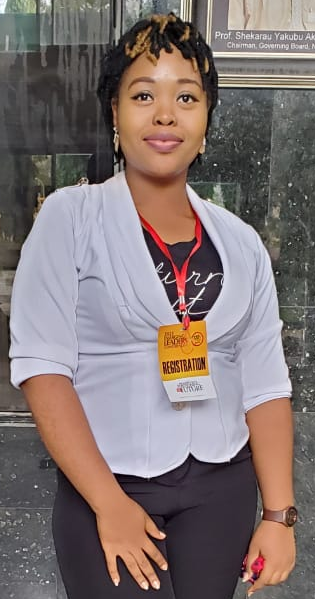 I’ve always loved to play dress-up. I always like to be myself and look good. I mean, dress up, look good, look beautiful. Uhm… I like to walk into a place and, you know, get everyone’s attention with what I am wearing.
I’ve always loved to play dress-up. I always like to be myself and look good. I mean, dress up, look good, look beautiful. Uhm… I like to walk into a place and, you know, get everyone’s attention with what I am wearing.
How I knew it was something I wanted to do is, there is this love I just have for fabric, clothes, fashion. When I’m less busy or I can’t sleep, or I just want to be happy, what I do is surf the internet going through styles, clothing, fabrics, looking at fashion brands, and then screenshotting a bunch and a ton of these pictures. I’ve been doing that for years even though I didn’t even know how to make clothes or sew.
During my early days in the university, my gallery was filled up with pictures of different styles, clothes, fabrics, and in my mind, I was like, one day, I am going to make all of these by myself. So, it was something that kept me happy.
Back then, you’ll see my mates going online, looking for blogs, gossip blogs, Instagram, Facebook, and all of that. But for me, I just go online to surf through clothes, fashion, styles, and all of that, even though I didn’t have the means to actually dress the way I wanted to dress (I was a student), or I didn’t even know how to sew. I just kept screenshotting pictures with the hope that one day I will actually learn to sew and make these clothes for myself.
Also, I am plus-sized. So, it’s kinda difficult to find… actually, it wasn’t difficult finding my size, but it was difficult finding a perfect fit. Uhm, and then also when it comes to making clothes with tailors, they don’t actually…. I didn’t see anyone that actually get my style and get what I really want. There was always one issue or the other. So I felt this is another reason to just do this for myself. And so that was the initial plan, and that was how the whole thing started.
So, after university, while I was waiting for callup letter, I decided to start, and then when I went for NYSC, I decided to continue from there. And I bought my first sewing machine with my ‘allawee’, and now I have two sewing machines; an industrial one and the first one I bought, the manual one. It was a sacrifice; it was not easy. I was receiving N19,800, but I was still able to take out N5,000 every month to pay for my training and was still able to save up to buy myself a sewing machine. It wasn’t easy, but it was worth it.
What's your brand name?
Pehn_couture but this is subject to change. I’ll be doing a major rebranding.
Who does your fashion business tailor to?
Women. For now. Major audience, plus size but not limited to them.
And what are your plans for the business in the nearest future?
From tailoring to designs to styling to shoes and accessories to fashion school to textile production to cosmetics by God’s grace
Does your brand have a major theme or style?
Yes. Afrocentric giving off modest vibes
What do you think has been instrumental to your level of success?
Fear of failure, consistency, constant learning and practice and God. Though I don’t consider myself successful yet. Still have a long way to go
What bias have you had to deal with in your career/business and how did you overcome them?
When I started out in my company I had a whole lot of competition to deal with and being someone who doesn’t care for such it was a problem. Also, I had issues warming up to the clients because of the girl syndrome
I am still overcoming and learning but the trick Is to just be humble and first warm-up with your colleagues and let them help you out with the clients. Also, study your colleagues’ approach and look for ways to stand out on your own
What do you see yourself doing in the next ten years?
Owning my fashion brand and textile factory. Also, maybe starting out my own skincare brand. I’m also looking forward to having my PhD.
What is the one thing you want everyone to know about you?
I have fears. I’m not a superhuman. And I don’t have it all figured out
Thank you for chatting with me.
The story of Promise Ubanatu proves that life is really what you make out of it, and destiny is what we make out of what we are given. She could have continued to wander the street of Nigeria searching for the ever-scarce white-collar job, but she rather chose to capitalize on her burgeoning interest in fashion and later turned it into a business.
Her business also gave her the platform to affect the lives of girls in her community. She partnered with DO to carry out a Pad project where she taught 30 girls how to make reusable pads. Those girls will never again experience period poverty in their lifetime.
What have you been given?
What are you making out of it?
Be like Promise.
Turn your passion into a business, and impact lives in the process.
Improving the Productivity of Rural Women for Economic Gains
The women of Adeke community in Benue State will forever be grateful to Dorothy Akende for spearheading a project that installed ten grinding machines in the community, empowered ten women and improved the productivity of 3000.
Before the grinding machines came, the women of Adeke, who are predominantly farmers, used to spend 1-2 hours daily and over 11,000 hours cumulatively per month crushing maize, millet and beans to flour using the local grinding stone, something that can take about 3 minutes with a grinding machine.
This is just one of many challenges women face every day that reduces their productivity. For the women of Adeke community, it was grinding staple foods with stone. For another, it could be a lack of access to credit loans to support their business. For another, it could be a lack of adequate maternal and childcare facilities.
When we talk about improving women’s productivity, we are not referring to setting up a hedge fund for women (though that wouldn’t be a bad idea) or donating bags of salt and rice to them.
Rather we are talking about enacting policies legislatures and putting up social infrastructures, facilities and amenities that will improve the overall wellbeing of women to enable them to become productive in their business and professional pursuits.
Challenges that hamper rural women’s productivity and its ripple economic effects
Lack of access to productive resources
Agriculture is the mainstay of rural livelihood in production, processing, sales, and consumption. According to data from UN Women, rural women constitute a greater percentage of the agricultural workforce in Sub-Saharan Africa, about 60%. However, these women don’t have equal access to productive resources like fertilizers, feed, livestock, improved seed varieties, credit loans, mechanical equipment, extension services and agricultural education as their male counterparts.
Having access to these resources could empower these women to increase agricultural yields by 20 to 30 per cent, accumulating from 2.5 to 4 per cent of aggregate agricultural produce in developing nations, drastically reducing the population of hungry people in the world by 100 to 150 million. In relatable terms, this means healthier families, well-nourished children and less nutrition-deficiency diseases.
Limiting inheritance and family laws
How do we even start talking about access to productive resources when most women cannot even have land to their name? Across different ethnic and cultural groups in Nigeria, women do not have the right to own properties, and they are not even considered eligible for inheritance in their own families. If they are widows, they are usually not entitled to any inheritance, except in the case of a written will and/or court marriage. Even when they decide to buy landed properties for themselves, they are obliged to put it under their husbands’ names.
Rural women are the most affected by this cultural belief because they are less educated, less exposed, less informed and less empowered to insist on their rights. As a result, most rural women work on their family farm without pay and, most times, have no say as to how the proceeds of the farm are spent. This makes the women financially dependent on their husbands and economically handicapped.
Absence of enabling infrastructures and facilities
In Africa, it is an established norm that women are homemakers and caregivers. Women carry more of the reproductive, domestic and care burdens in their families. In fact, they are raised with that consciousness. But what is more sad is that they spend productive time carrying out these culturally assigned roles due to poor infrastructure and services. In rural communities, women trek to distant forests to fetch firewood for cooking, fetch water from faraway streams and spend substantial time in household work, childcare and reproductive duty to their husbands. These activities cut deep into their time, leaving little or no time for academic, business or professional pursuits.
Those who find time to get a job usually settle for less demanding and professionally less rewarding jobs to meet up with their daily obligations at home. As a result, the women don’t go far or dare for bigger stakes in their career/profession. The job is usually a means to supplement family income; no career prospects, no fulfilment, no substantial reward.
Restricted access to education
Illiteracy is a pandemic that limits and undermines the potential of any individual. Women, especially rural women, are the worst hit by this pandemic. And no, the illiteracy is not attributed to the lack of schools in the rural community; if that were the case, we would have equal stats of illiterate rural men and women. The illiteracy is predicated upon the patriarchal norm that a man preserves the name of a family, but a woman can be married off at any time. As a result, you find many families, especially in northern Nigerian, reluctant to send their girls to school, and even when they do, they don’t go beyond secondary education.
And this continues to be the case despite infallible evidence that educating the girl-child increases their options in life, helps them make better life choices, empowers them to pursue their dreams, increases their earning potential, attracts educated and informed spouses that won’t abuse them, and emboldens them to insist on their rights.
The benefits of educating the girl-child have broader and longer-term implications for families, communities and the world. Research has shown that a woman’s education is pivotal in determining whether her children will survive past the first five years of life. Educated women are equipped to support their families better financially and emotionally whilst contributing to a balanced and thriving society through their participation across the different sectors of society.
What to Do
Grassroots initiatives to erode the patriarchal systems
It is impossible to empower women without touching on the cultural and religious belief systems that treat women as second class citizens. To combat these limiting belief systems, grassroots initiatives should be launched in communities involving key stakeholders like religious organisations, social institutions, and government at their basest level.
At the fundamental level, parents should be educated that no gender is superior to the other; therefore, their children, whether male or female, deserve equal treatment and equal access to education and opportunities. There should be no gender roles in executing chores in the homes. Boys should be raised to see their female counterparts as equals, to treat them with respect and relate with them first as individuals. Parents should raise girls to aspire for more in life than marriage, to relate with their male counterparts as equals and challenge status quo that discriminate against them.
Provision of basic infrastructures
Putting up infrastructures like boreholes and taps, electricity, good road networks, grinding machines, toilet facilities etc., will go a long way in reducing the time women spend using local means to achieve these things. It will allow them to have more time for their farm work, business, job or even education whilst carrying out their culturally imposed duties.
Involving women in policy-making
It won’t be easy to draft policies that will ensure the well-being of women in society if women are not duly represented at the decision-making table. Therefore, it is imperative to involve more women in enacting legislation and policies at all levels of government; local, state and federal. This will ensure that adequate attention is drawn to the needs of women, and these needs are addressed from the women’s perspective with sustainable solutions.
Equal access to productive resources
Rural women should have equal access to credit facilities, improved seed variables, feed, livestock, mechanised equipment, extension services, and everything their male counterparts enjoy, making their farm work easier and more productive. The government should supervise stakeholders involved in the distribution to ensure gender parity is observed.
Pro-women policies that encourage equal rights to inheritance and properties
Policies that ensure women have equal rights to family inheritance and properties as their male counterparts should be enacted and enforced, especially at the grassroots level. Widows should be allowed to retain the right to the properties of their deceased husbands. Rural women should be allowed the right to buy and own properties in their own names.
Improve Her Productivity project is a 3-day skill development project for girls and women in Semi-rural and Urban Nigeria. Girls and women are trained in soft and hard skills to improve productivity. Skill development contributes to structural transformation and economic growth by enhancing the employability and labour productivity of women and girls in their communities.
Join us to improve the productivity of women and girls in your community.
To become a Grassroots Development Champion (GDC) click here.
To partner with us in setting up social infrastructures and facilities that will improve the productivity of women and girls, click here.
Breaking the bias against girls in STEM
In 2021, a plethora of Nigerian startups secured funding worth $1.37 billion.
You know what’s interesting?
Aside from the heavy-weight startups like Flutterwave, Opay, Andela, a handful of female-led startups like Reelfruit, Okra, Edukoya, Shuttlers, Bankly, and a host of others got a good slice of those funding.
E shock you?
However, that would not have been possible without their background in STEM.
Importance of STEM
STEM is an acronym that stands for Science, Technology, Engineering, and Mathematics. STEM fields are important for sustainable growth and development. The importance of STEM cannot be overemphasised as its role in technological advancement is becoming increasingly significant now and in the future. A peek at the Fortune 500 companies, which mostly comprise tech and tech-dependent companies, tells you that tech is the new gold.
Tech startups, powered by knowledge of STEM, are altering people’s lives and disrupting the status quo at a rate faster than ever before. More importantly, they are proffering real-world solutions to real-world problems.
In the heat of the pandemic, Neto Ikpeme, CEO and Founder of Wella Health, initiated a solution that provides a nearly real-time view of COVID-19 case management resource availability and utilisation. Olamide Orekunrin founded ‘Flying Doctors Nigeria’ after losing her sister, who could not be quickly airlifted from the country for prompt medical attention abroad. Temie Giwa-Tubosun founded ‘LifeBank’ to institutionalise blood donation in Nigeria after delivering a premature baby in the United States. Bilikiss Adebiyi-Abiola initiated ‘WeCyclers’ to recycle the heaps of wastes on the streets of Lagos. Odunayo Eweniyi co-founded PiggyVest to help people to save more. The list is inexhaustible.
On the economic front, the solutions afforded by STEM fields provide jobs to the teeming unemployed populace, improve living standards, alleviate poverty, and increase the country’s Gross Domestic Products (GDP).
In healthcare, advances in STEM have facilitated breakthroughs that have led to the development of vaccines and treatments of sicknesses and diseases that were once thought to be deadly, thereby relieving the global death toll, especially in developing countries. Telemedicine, remote patient monitoring, robotic surgery, telehealth, nanomedicine, smarter pacemakers etc., are some of the more recent technological developments in medicine.
Talk of engineering; it only gets better. STEM is the foundation on which engineers can design, create, build and maintain infrastructures, facilities and systems. Everything that constitutes a smart city per se, from self-driven cars, electric cars, kinetic roads, 3D Modelling, 5G network, smart buildings, connected homes, smart grids, and what-have-you, were developed based on the knowledge STEM affords.
Scarcity of Stem Talent.
Despite the promises STEM careers hold, especially for a developing country like Nigeria, it is rather a surprise that only a small fraction of the youth populace is interested in STEM fields.
This is a huge problem.
If the trajectory continues, it could lead to the meltdown of the innovations and digital disruptions that have been established, stagnated economic growth or worse.
Given that women constitute about half of the population in Nigeria, it is a bigger problem if their potential in STEM is not harnessed. Women are important to the future of technology, and they bring diversity and are naturally detailed, empathic and drawn to problems. Not providing opportunities for women in STEM could mean losing stellar innovations and creative solutions from a woman’s perspective.
Having more women in STEM will also increase women’s financial independence, potentially closing the gender pay gap and offering them an opportunity to shape the world.
Why many women are not in STEM in Nigeria
However, before we can close the gender gap in STEM, it is important to understand why fewer women are in STEM fields.
The first reason is the age-long stereotype that STEM is more suited for boys than girls. This myth is reinforced by exclusionary, recalcitrant, male-dominated cultures that are not attractive or supportive. As a result, not many women opt-in to STEM fields, and ultimately there are fewer role models for girls who even have the slightest interest in STEM to look up to in admiration and for inspiration.
Poverty is also another challenge that deters women from pursuing careers in STEM. STEM courses are more expensive to study and take longer years. To lessen the financial burden on their parents, girls would rather pick a low-cost course to finish school on time and help their parents.
An inhibitive environment also plays a major role in deterring girls from pursuing a career in STEM. Aside from girls born in high-end urban cities like Lagos, it is particularly uncommon for girls born and bred in villages to see the wonders and opportunities STEM offers.
What can be done?
To inspire girls to take STEM fields, there should be concerted efforts to shortchange the prevalent mentality of boys’ superior intelligence in STEM fields as compared to girls. Gender equity initiatives like She STEM, Dare to STEM, Girls Can Code etc., should be adopted in schools in grassroots communities to show girls the possibilities and opportunities in STEM and offer mentorship to those interested. STEM fairs, expos, trips and bootcamps should be organised to put girls in STEM immersive environments that will pique their curiosity and spark their interest.
The She STEM project by DO is centred on changing the outdated stereotypes and gender barriers that restrict the female folk from participating in STEM and gaining job opportunities where they can earn almost double per hour on average because 80% of future jobs require a STEM Education. The project aims to motivate and empower young girls and women of grassroots communities to take up career opportunities and positions in Science, Technology, Engineering and Mathematics fields.
Join DO-Take Action and become a Grassroots Development Champion (GDC) to carry out She STEM project in your community and communities around you.
To become a GDC, click here.
You can also partner with us to sponsor a She STEM project. To become a DO partner, click here.
Combating Gender-Based Violence in Nigeria
In 2020, in the heat of the pandemic, 22-year-old University of Benin student, Uwa Omozuwa, was raped to death inside the Ikpoba Hill branch of Redeemed Christian Church of God, in Benin City, Edo State. Justice is yet to be served to the perpetrators of this heinous crime.
Just last year, the same fate met 11-year-old Favour Okechukwu, a vibrant and brilliant young girl who was sent on an errand by her mother. Again, the perpetrators are yet to be found and punished.
What is gender-based violence?
Gender-based violence is violence against a person that results in or is likely to result in, physical, sexual, or mental harm or suffering to the person, including threats of such acts, coercion or arbitrary deprivation of liberty, whether occurring in public or in private life.
However, women and girls are usually the prime victims. Somewhere; in an uncompleted building, in a place they call home, in an office, in a war-stricken and violence-ridden demographics – a woman or girl is being violated.
Violence against women and girls can be seen in different forms. It could be sexual harassment by her boss, verbal and/or physical violence from an intimate partner, rape by a partner or non-partner, female genital mutilation in some cultures, early marriage in some religions, sex slavery by insurgents in the North East, and any other act that can result in physical, sexual or psychological harm.
Violence against women and girls is a global public health problem and violation of women’s human rights that affects 1 in 3 women in their lifetime. According to NDHS IN 2013, nearly 3 in 10 Nigerian women have experienced physical violence by age 15. Following the 2020 lockdown in Nigeria, rape cases went through the roof with recorded cases of about 11,200 in Nigeria alone.
The health implications of gender-based violence
Gender-based violence can cause serious short- and long-term physical, mental, sexual and reproductive health problems for women. Sexualised gender-based violence could lead to unintended pregnancies, induced abortions, gynaecological problems, sexually transmitted infections, or ultimately untimely death of victims as seen in the cases cited above. The psychological trauma and the stigmatization victims suffer can result in mental or emotional disorders such as isolation, depression, even suicide.
A WHO 2013 study shows that intimate partner violence during pregnancy is the leading cause of cases of miscarriage (16% likelihood) and pre-term delivery (41% of likelihood). Children who experienced sexual abuse are more likely to engage in delinquent behaviours like promiscuity, prostitution, substance use, and unorthodox sexual tendencies.
Why don’t women speak up against gender-based violence?
The long history of gender inequality and the oppression of women disempowers women from speaking up against gender-based violence. Women are advised, coerced or threatened to keep mute about their experience.
Stigmatisation is another reason why women don’t speak up. Society sees victims as people broken, messed up and emotionally deranged; this hampers their economic progress and social integration. As such, victims and even their loved ones would rather keep quiet about their experience than face the contemptuous gaze of people.
Despite the prevalence of gender-based violence, there is not enough information about how victims and their families could get help, treatment and justice. During my stint in a law firm, I witnessed firsthand the level of ignorance young girls had, especially in rape cases. I saw young girls who were raped but didn’t tell anyone about it till the legal time to file a valid case had elapsed. It is that bad.
However, the most despicable of reasons is the lack of trust in the authorities and institutions that are supposed to seek justice for victims. Victims do not stress themselves to report to authorities because they are either not taken seriously, blamed, or extorted. Out of the numerous cases of rapes reported, it is disheartening that perpetrators are either not found at all, or they buy their way out of jail. Inadvertently, this emboldens culprits to continue their evil without fear of the law.
Even more disheartening is the fact only 16 out of 36 states have adopted the Violence Against Persons Prohibition Bill; legislation expected to empower governments at the state level to prosecute perpetrators with a modern framework that proffers quick identification of defaulters. This illuminates the priorities of our dear government.
What can be done?
Gender-based violence is fundamentally a mindset/orientation problem that should be dealt with from the grassroots. It entails deploying initiatives that address root causes, underlying risk factors for violence, including social norms regarding gender roles and the acceptability of violence at family, community, religion, institution and national levels.
The girl-child should be taught different forms of Gender-based violence and enlightened on how to identify a potential danger, how to protect themselves, and ultimately what to do if they fall victim. They should be educated on and encouraged to make complaints to designated authorities when such occurs.
Prosecuting institutions should be transparent and swift in passing judgment on Gender-Based Violence and perpetrators should be publicly punished to serve as a deterrent to prospective and intending defaulters.
And of course, proper and special healthcare should be provided to victims for treatment, therapy, rehabilitation and reintegration into society.
The Never Again GBV project by DO is a one-day awareness workshop to increase the knowledge and understanding of gender, sexuality, rights and gender-based violence. Here at DO-Take Action, our Grassroots Development Champions (GDCs) carry out workshops in their respective communities to reorient their people on the grave consequences of gender-based violence on women, their families, and society at large well as, advocate for the rights of women and girls.
Are you going to sit on the sidelines and keep watching this wickedness or will you rise to the occasion and raise your voice in solidarity? The next victim could be someone you know.
Become a Grassroots Development Champion today and take action against Gender-based violence in your community.
To partner with us as an organisation or sponsor our projects, click here.
Dorothy Akende: from being needy to helping the needy
Many people attribute their failures in life to having a difficult childhood. However, instead of remaining in the dumps, some people have capitalised on their hardships and picked up the sticks life threw at them to build a stature that has become a helping hand to others. Dorothy Akende is one of such.
Let’s meet her!
Tell us a little about yourself.
My name is Dorothy Akende. I am a Tiv girl from Benue state, and I attended Nasarawa State University, where I studied Religious Studies. I am in my 30s and work as a community development worker.
Let’s talk about your childhood. What was it like?
I grew up in a family of nine with seven children; four girls and three boys. Well, it was in a low-income community where sticking together as a family was how we survived.
When did you decide that your current career is what you want to do?
I grew up in a family of nine. When I was about nine years old, my parents divorced, and my dad remarried. My elder sister was about 16 years old. And so, when he remarried, he left the care of the six of us in the hands of my sister. She had to drop out of secondary school to take care of us. She was hawking soap, doing wholesale work for different companies, and also learnt how to make hair. I learnt how to make hair through her and was also helping her make hair; that was how we could make ends meet.
All six of us were working for people to gain foodstuffs and see how we could support each other because, you know, a hungry lion is an angry lion. Food was a major problem. We were working while my sister supported us by doing all kinds of jobs. Because of her experience, I told her that one day, when I have money, I will help people. And she said you don’t need to have money to help people. That experience led me to found my organisation – the House of Hilkiah foundation – to empower women because I know that if you empower a woman, you empower a nation. That’s the main reason why I chose what I am doing today – to support women because they are the ones that know how to hold families well. So, that’s the story of how I started my foundation.
What do you think has been instrumental to your level of success?
Well, it’s not about me. It’s about the people that I am serving. That is what drives me every day. Even when I am having a bad day and want to give up because things are not going the way I want, it dawns on me, “this is not about you, Dorothy. It’s about the people you are serving.” That is the instrument to my success – that it’s about the people I am serving, and that they matter because I know that in my community, that girl who is dreaming of becoming a doctor, a lawyer, I am providing a platform to allow them to succeed.
What opportunities in your career/business have you leveraged to reach this level?
The community where I come from is underrepresented out there, and because of that, people want to know what I am doing. I leverage this to talk about my community a lot. And this gets people interested to know who I am and what I am doing.
What bias have you dealt with in your career/business, and how did you overcome them?
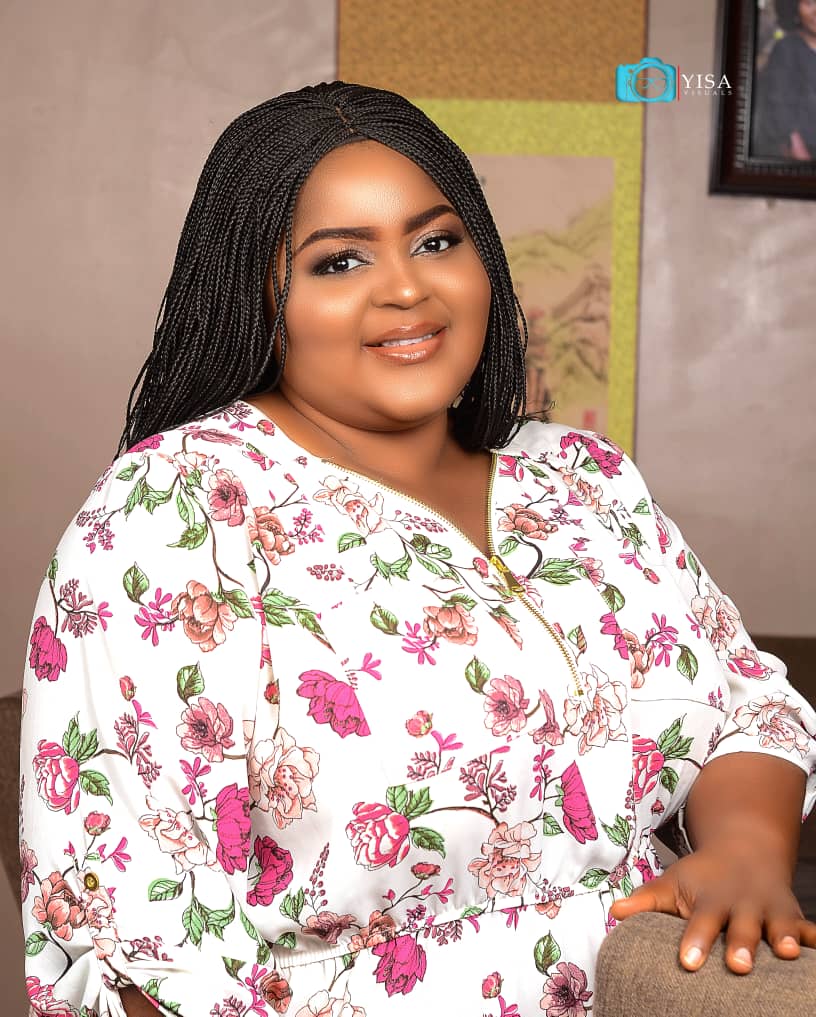 I went through a lot of discrimination first because I am a woman and then coming from a marginalised tribe. It was difficult because people always asked, “Who is she? Which tribe is she from?”
I went through a lot of discrimination first because I am a woman and then coming from a marginalised tribe. It was difficult because people always asked, “Who is she? Which tribe is she from?”
Also, I have had to deal with men asking me to compromise before getting what I want. But, I always stand my ground. If I had compromised, most of the men who have seen me would be like, “she did this to get to where she is now.” But, they can’t do that because they know I worked very hard to get to where I am today. I had to endure sexual advances. There was this one man that said he was going to help, but he didn’t do that because I refused to go to bed with him. I had to remind myself that I am not competing with anyone because it’s not about me but the people I serve. So, if I start compromising today, what will I tell that young girl who faces the same thing out there? So, because I have not compromised myself, it gives me the boldness to tell young girls to be true to themselves and be seen for who they are and not what people can get from them.
Not compromising has helped me earn the respect of men. Some of them tell me, “Dorothy, you know what you want.” Some are shocked that I am still doing what I am doing despite all their advances and threats because it’s really about consistency and passion. They’ve seen that the passion is there, and they’ve seen that the consistency is there. Now, they are ready to help me.
I have gone through a lot of bias in this work, but I keep reminding myself that I have something to offer to the world and my community; that has kept me. I always remind myself, “Dorothy, even if you can’t find yourself in this crowd, you can form your crowd, be your crowd. The sky is big enough to accommodate everybody. So, even if there is no seat at the table, you can always draw your chair to the table.” So, I keep putting myself out there so people can see my potential and not my face or physical endowments. I let them always see what I have to offer. I am grateful to God that I’ve been able to face these challenges and overcome them.
What do you see yourself doing in the next ten years?
I see myself doing what I am still doing in the next ten years, but on a bigger scale. By then, we will have facilities that will give young girls the platform to become who they want to become, succeed, and thrive. I see myself impacting more lives, and my fulfilment is to see people following through with their dreams and achieving much just because of my impact.
How does your current job connect to your ambitions for the future?
My ambition for the future is to provide an enabling environment for everyone to succeed irrespective of their tribe, religion or gender. My utmost desire is to see every young girl achieve their dream. And my community development work connects to that ambition. Like I have always said, it’s not about me but about the people I am serving. I want to live a life that when one day I’m not here, I know that I have made an impact in someone’s life, that because of me, someone has gotten the opportunity to pursue their dreams. So, this work connects to my ambitions for the future.
What is the one thing you want everyone to know about you?
People ask me how I get the strength to do what I do consistently. I am a believer. I believe in God so much. If you want to come around me, you have to believe in my principle, and my principle is that I believe so much in God. Whatever I want to do, I always get up at midnight to do my midnight prayers and get to talk to God about it. I don’t harm people. I don’t sabotage people’s work. There’s what we call karma; I believe whatever you do to anybody will come back to you. I know that very well, and I try to avoid it. I don’t believe in sabotaging because I also believe that I will get what I need when the time is right.
Another thing I always tell people is if you want to come around me, be ready to be on the move because I am always on the move. Whatever I want to do, I am always putting my 100% into it, and I am consistent. I know I am still learning, but this is who I am.
Again, I take advantage of opportunities when they present themselves. If I go somewhere, I already know what I want to do and who I need to meet, so once I get there, my mind is already open to opportunities…like even the smallest person in the room that I know will be relevant to what I want to do, I am always open. When most people ask, “Dorothy, how do you do it?” I tell them I always take advantage of opportunities. I can travel somewhere to meet one person who will support my course and work.
Another thing, if I need something from, say Nigeria, I don’t put my mind that President Buhari will be the one to do it for me. I don’t trust one person or organisation to help me achieve my goals; that would be limiting God. I always tell God to bring the right person to help me get to the desired level in whatever project I handle. That is one thing that has helped me stand tall. I hope someone learns from this that a man can take you to a level, but God can take you all the way.
Thank you for chatting with me.
Dorothy Akende is a Grassroots Development Champion (GDC) with DO-Take Action and also the founder of the House of Hilkiah Foundation. Dorothy understands the importance of providing enabling platforms to encourage, empower and inspire women and girls to greatness. Her passion led her to partner with GTBank for a community project under DO-Take Action, to install 10 grinding machines, empower 10 women and increase the economic productivity of 3000 women in Adeke community.
Want to drive sustainable change in your community?
Join Dorothy to become a GDC.

